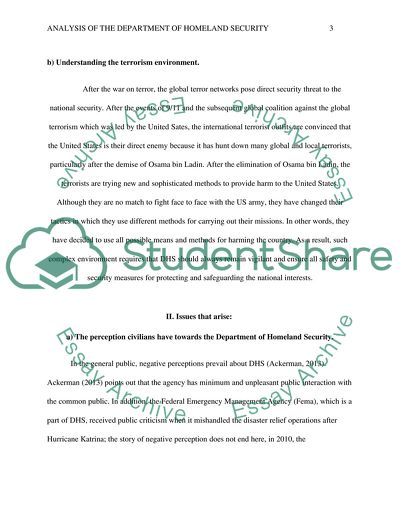Cite this document
(Department of Homeland Security and Its Role within Our Government Research Paper - 1, n.d.)
Department of Homeland Security and Its Role within Our Government Research Paper - 1. Retrieved from https://studentshare.org/politics/1832153-analysis-of-the-department-of-homeland-security
Department of Homeland Security and Its Role within Our Government Research Paper - 1. Retrieved from https://studentshare.org/politics/1832153-analysis-of-the-department-of-homeland-security
(Department of Homeland Security and Its Role Within Our Government Research Paper - 1)
Department of Homeland Security and Its Role Within Our Government Research Paper - 1. https://studentshare.org/politics/1832153-analysis-of-the-department-of-homeland-security.
Department of Homeland Security and Its Role Within Our Government Research Paper - 1. https://studentshare.org/politics/1832153-analysis-of-the-department-of-homeland-security.
“Department of Homeland Security and Its Role Within Our Government Research Paper - 1”, n.d. https://studentshare.org/politics/1832153-analysis-of-the-department-of-homeland-security.


